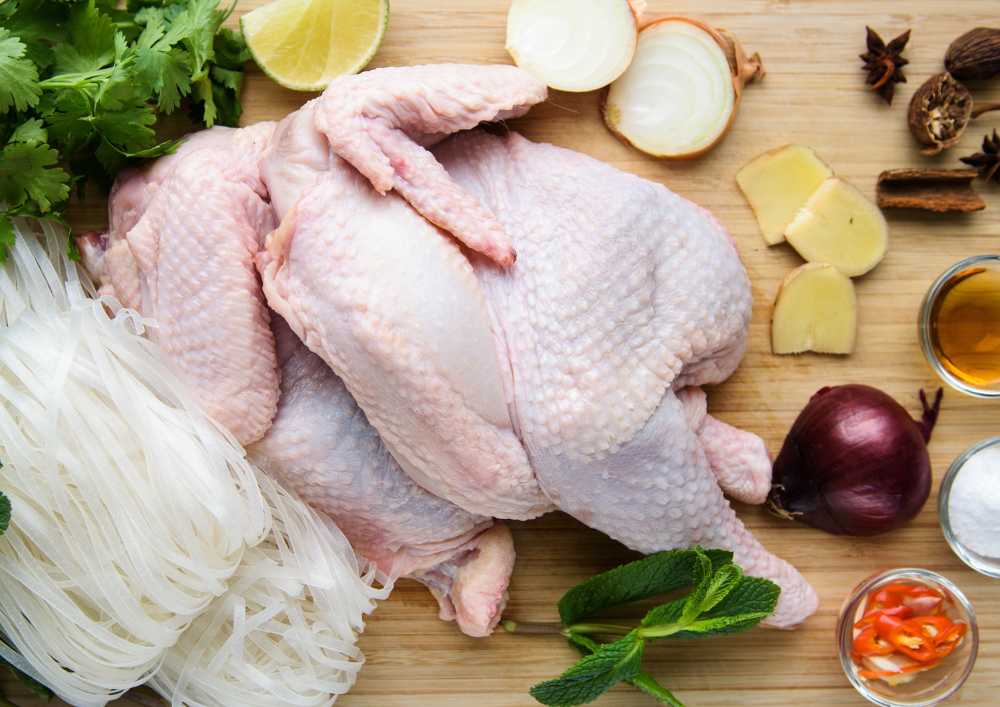
Meat is an essential part of a low-carb diet as it provides protein, healthy fats, and essential vitamins and minerals. Some studies in the past have found that diets high in red meat can increase the risk of colorectal cancer and pancreatic cancer. Additionally, consuming processed meats, such as bacon, sausage, and hot dogs, has been linked to an increased risk of certain types of cancer, including colorectal cancer. However, new research and studies red meat is not a health risk.
While it’s true that red meat can be a good source of protein and other nutrients, it’s important to consume it in moderation as part of a balanced diet. It has been recommended in the past to limit meat consumption and avoiding processed meats altogether. On a low-carb way of eating though, eating unprocessed meat everyday is encouraged.
Here are some low-carb meat options that you can incorporate into your diet for diversity.
Beef
Beef is an excellent source of protein and contains essential nutrients like iron, zinc, and vitamin B12. Yes, beef is an excellent source of protein. A 3-ounce serving of beef provides approximately 22 grams of protein, making it an ideal food for those following a high-protein, low-carb diet. Beef also contains essential amino acids that are important for muscle growth and repair, as well as other important nutrients like iron, zinc, and vitamin B12. However, it is important to choose lean cuts of beef to keep the fat content in check and avoid overconsumption of saturated fat.
Chicken
Chicken is a versatile meat that is low in carbs and high in protein. It is also a good source of vitamins and minerals like niacin, selenium, and phosphorus. A 3-ounce serving of chicken provides approximately 26 grams of protein, which is important for muscle growth and repair. Chicken is also a good source of vitamins and minerals like niacin, selenium, and phosphorus, which are important for maintaining overall health. Additionally, chicken can be prepared in a variety of ways, making it a versatile ingredient for low-carb meals. However, it’s important to avoid breaded or fried chicken as these preparations can add unwanted carbs and unhealthy fats to your diet.
Pork
Pork is a good source of protein, B vitamins, and essential minerals like iron and zinc. A 3-ounce serving of pork provides approximately 22 grams of protein, which is important for muscle growth and repair. Pork is also a good source of B vitamins like thiamin, niacin, and vitamin B6, which are important for maintaining healthy metabolism and energy levels. Additionally, pork is a good source of essential minerals like iron and zinc, which are important for maintaining healthy immune function and overall health. However, it’s important to choose lean cuts of pork to keep the fat content in check and avoid overconsumption of saturated fat.

Fish
Fish is a low-carb, high-protein food that is rich in omega-3 fatty acids. It is also a good source of vitamins and minerals like vitamin D and selenium. Fish is an ideal food for those following a low-carb way of eating. A 3-ounce serving of fish provides approximately 20 grams of protein, which is important for muscle growth and repair. Fish is also a good source of omega-3 fatty acids, which are essential for brain function, heart health, and reducing inflammation in the body. Additionally, fish is a good source of vitamins and minerals like vitamin D, vitamin B12, and selenium, which are important for maintaining overall health. However, it’s important to choose low-mercury fish options and avoid breaded or fried fish to keep your carb intake in check.
Turkey
Turkey is a lean protein source that is low in fat and carbs. It is also a good source of vitamins and minerals like niacin, selenium, and vitamin B6. A 3-ounce serving of turkey provides approximately 25 grams of protein, which is important for muscle growth and repair. Turkey is also a good source of essential nutrients like selenium, which is important for healthy immune function, and niacin, which is important for maintaining healthy skin and nerve function. Additionally, turkey is a low-fat protein source, which makes it a good option for those looking to reduce their overall fat intake. However, it’s important to avoid turkey that has been processed or contains added sugars, as these preparations can add unwanted carbs to your diet.
When selecting meat for a low-carb diet, it is important to choose high-quality, unprocessed meats and avoid processed meats that contain added sugars and carbs. Additionally, it’s important to watch your portion sizes and pair your meat with low-carb vegetables and healthy fats to create a well-rounded, balanced meal.
Why Avoid Processed Meat
Processed meats are those that have been transformed through salting, curing, fermentation, smoking, or other processes to enhance flavor and improve preservation. Examples of processed meats include bacon, sausage, hot dogs, ham, and deli meats.
There are several reasons why it’s recommended to limit or avoid processed meats:
- High in sodium: Processed meats are often high in sodium, which can increase the risk of high blood pressure, heart disease, and stroke.
- Linked to cancer: Processed meats have been classified as Group 1 carcinogens by the International Agency for Research on Cancer (IARC), meaning they are known to cause cancer in humans. Specifically, processed meats have been linked to an increased risk of colorectal cancer, as well as other types of cancer.
- High in unhealthy fats: Many processed meats are high in saturated and trans fats, which can increase the risk of heart disease.
- Lower in nutrients: Compared to unprocessed meats, processed meats are often lower in nutrients such as iron and zinc.
It’s important to note that not all processed meats are created equal. Some may be less harmful than others depending on how they are processed and what ingredients are used. However, as a general rule, it’s recommended to limit or avoid processed meats altogether and opt for whole, unprocessed meats as a healthier protein source.

———————————————————–
Sources:
Red meat is not a health risk. New study slams years of shoddy research : https://bigthink.com/health/red-meat-cancer-not-health-risk/
Health effects associated with consumption of unprocessed red meat: a Burden of Proof study : https://www.nature.com/articles/s41591-022-01968-z
Why Processed Meat is Bad For You : https://www.healthline.com/nutrition/why-processed-meat-is-bad







Leave a Reply